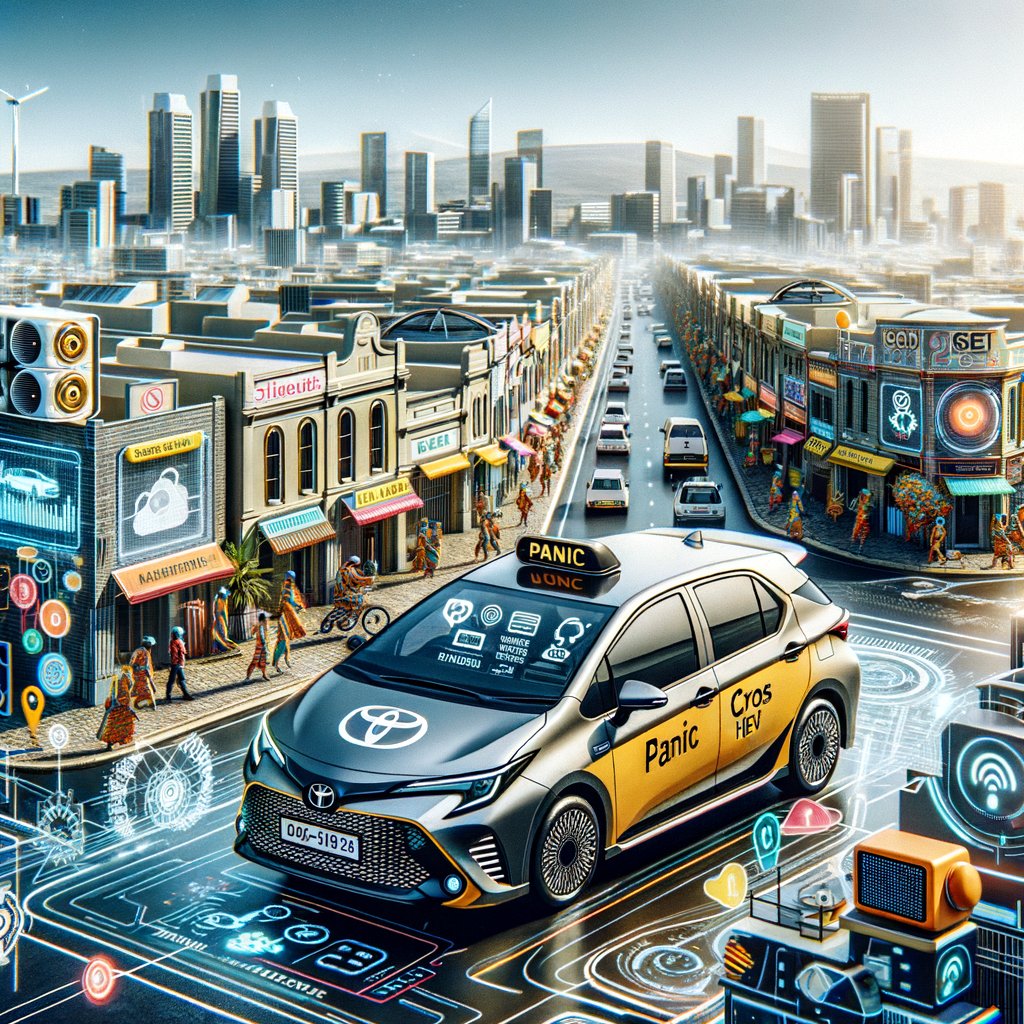Image created by AI
Wanatu: The Rising Success of the "Afrikaans Uber" in South Africa
In an innovative twist to the burgeoning e-hailing market, Wanatu, affectionately termed the 'Afrikaans Uber,' has quickly carved out a niche in South Africa's transport sector. Launched in the last quarter of the previous year, Wanatu has impressively garnered over 30,000 subscribers, signaling a robust market demand. Operating primarily in Centurion and Pretoria, the service utilizes the eco-friendly Toyota Corolla Cross HEV, aligning with global trends towards greener transportation solutions.
Wanatu prides itself on enhancing passenger safety beyond the typical standards found in competitors like Uber and Bolt. Several features set Wanatu apart: a panic button for emergencies, a comprehensive two-way radio system paired with a control room monitoring each ride, vehicle tracking devices, and dashboard cameras that include live feeds of the vehicle's interior and exterior. Additionally, it offers users the unique option to select their preferred driver, adding a personalized touch to the experience.
However, the service's requirement for drivers to be fluent in Afrikaans has sparked discussions among South Africans. This language requirement, according to Wanatu, is not just about facilitating communication but also about fostering employment within the Afrikaans-speaking community and restoring the community’s dignity. Wanatu's Director, Van Rooy van den Berg, highlighted on Jacaranda FM the cultural significance of providing dignified employment opportunities, especially given the recent job losses in the Afrikaner community.
Interestingly, while the drivers must speak Afrikaans, there is no language prerequisite for the passengers, indicating an inclusive approach towards anyone who chooses to use the service. This strategy may extend its appeal to non-Afrikaans speakers who are attracted by the safety features and the eco-friendly vehicles.
In addition to its regular e-hailing service, Wanatu offers specialized services including school transport and airport shuttles, effectively broadening its market reach. These services emphasize not only convenience but also the safety and reliability crucial for segments involving children and travel.
The rise of Wanatu is a clear indication of a niche market that appreciates cultural specificity mixed with high safety standards in South Africa's dynamic e-hailing landscape. As urban mobility evolves and as consumers become more conscious of their choices, services like Wanatu that cater to specific community needs while not isolating others are likely to see continued growth. Whether or not the model will inspire similar services remains to be seen, but for now, Wanatu is driving forward with significant momentum.










